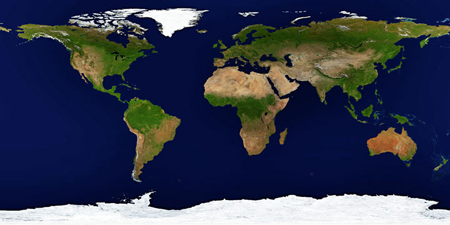But two years after all the talk about Burma's "transition to democracy," my Rohingya people are still being persecuted. Today, the Rohingya are where they were in 2005 when the police came to our house and took us away.
Ahmadiyya Times | News Watch | US Desk
Source/Credit: The Huffington Post
By Kyaw Min | December 19, 2013
By 1990, 15 years before I went to prison, the ruling generals had been in power in Burma for more than 40 years. In those days I was an elected member of the Burmese Parliament. Then in 2005, my family and I were arrested by the police. My wife, son and two daughters and I spent the next seven years in prison. They said our "crime" was declaring our rights as ethnic Rohingya. My jailers told me that speaking up for the Rohingya was giving Myanmar "a bad name" internationally.
In 2010, when the military leaders released pro-democracy leader Aung San Suu Kyi from house arrest, I thought Burma was beginning to change for the better. Soon they announced political and economic reforms and they relaxed some restrictions on the press. A human rights commission was set up, under government control.
Some foreigners thought these small steps meant that the military was letting go its grip on Myanmar. The U.S. acted quickly to reward the generals. That was a signal to international investors to start looking for new markets in my country. In 2011, while my family and I were still in prison, Secretary of State Hillary Clinton visited Burma. Then came an important visit by President Obama in 2012. That was followed by the U.S. decision to reduce trade sanctions and travel restrictions against Burmese leaders. Then early this year, my family and I were finally freed from prison.
But two years after all the talk about Burma's "transition to democracy," my Rohingya people are still being persecuted. Today, the Rohingya are where they were in 2005 when the police came to our house and took us away: we are stateless people, whose homes can be burned by mobs as the police stand by as idle witnesses.
10 Things You Need to Know About the Rohingya People
- Burma has a Buddhist majority. Less than 9 percent of the population is Muslim but we are more than a million people.
- We are an ethnic people who practice Islam and speak the Rohingya language. Most of us live in the state of Rakhine, where my great grandparents and their great grandparents were born.
- In the last 18 months, Buddhist mobs have terrorized Muslims throughout Burma. More than 200 Muslims have been killed and mosques, homes and businesses have been burned, all while the authorities turned a blind eye. Today, almost 150,000 Rohingya are trapped in dirty refugee camps, living in bad tents, with not much food and not enough medicine. The police prevent them from coming and going as free people. Some refugees are killed under mysterious circumstances or simply disappear forever. Sometimes the bodies are dumped in unmarked graves. It is like a big outdoor jail. Many Rohingya people have tried to escape to other countries. Last month, 70 men, women and children drowned in an overloaded boat that should never have gone to the deep sea. Amnesty International and Human Rights Watch and others have condemned "human rights violations" against the Rohingya.
- When the army seized power in 1962, it introduced discriminatory laws and Jim Crow rules. The Buddhist majority said Rohingyas were unwanted intruders. Today they call us "Bengalis" in the absence of any proof to make it seem we are illegal immigrants from Bangladesh. It makes us feel like "aliens" in our own country.
- The Rohingya were full citizens of Burma until 1982. In that year a new law by the military government took away citizenship from Rohingya on the false accusation that they came to this country only after 1823 British occupation of Rakhine State.
- Today in Myanmar, we are not allowed to marry or have more than two children without government permission.
- Nobel prize winners like Nelson Mandala and Desmond Tutu and His Highness the Dalai Lama have spoken up for the Rohingya. Unfortunately, Aung San Su Kyi, our Burmese Nobel Laureate who is expected to contest for the presidency in the 2015 election, has not stood up for these persecuted people.
- The general census, which begins in a few months, may make things worse. The government says it will give the 135 so-called ethnic peoples a code number so each group to be counted in the census. But the government refuses to give us a code number. Instead, Rohingyas will be registered under the "foreigner" column, which some day may allow us to be deported from our own country.
- We need protection from mob attacks and property loss, surprise arrests and a court system that is stacked against us -- all for the "crime" of being Rohingya. The United Nations recognizes our plight. On November 19th, the U.N. third committee passed a resolution telling Myanmar to give us back our citizenship. But the Burmese government rejected the resolution and accused the U.N. of violating its sovereignty.
- It is sad but now the U.S. is considering military and financial aid to its newest friend: Myanmar. Before that happens, Americans should demand that the Rohingya, Myanmar's most vulnerable people, receive full citizenship and equal protection under the law.
Read original post here: 10 Things You Need to Know Myanmar's Persecuted Muslim Minority
This content-post is archived for backup and to keep archived records of any news Islam Ahmadiyya. The views expressed by the author and source of this news archive do not necessarily reflect the views and policies of Ahmadiyya Times.














No comments:
Post a Comment
Thank you for your comments. Any comments irrelevant to the post's subject matter, containing abuses, and/or vulgar language will not be approved.